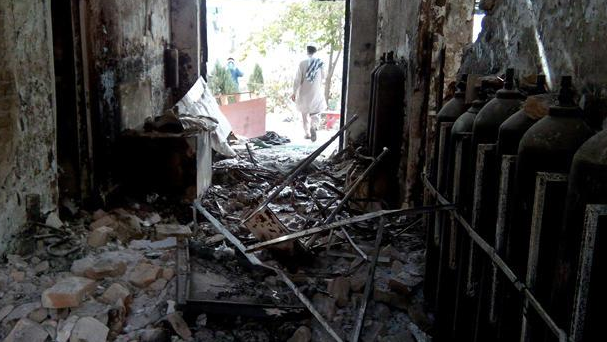 aNewDomain commentary — Work for a government agency? Did you screw up, and want to cover up your screw up, but because you supposedly work for the people, you have to present the illusion of transparency?
aNewDomain commentary — Work for a government agency? Did you screw up, and want to cover up your screw up, but because you supposedly work for the people, you have to present the illusion of transparency?
Simple. Issue a report that purports to come clean — a total whitewash that throws some low-ranking schmucks under the bus — and release the sucker when nobody, but nobody, is likely to read about it.
Like a Friday afternoon. It hits what’s left of the newspaper’s Saturday morning edition, by far the least read of the week. By Monday morning when the world gets back to work and retail politics resumes around the nation’s watercoolers and coffee makers, it’s forgotten.
That’s what happened earlier this week.
It was the day before the long Thanksgiving weekend. Official Washington and New York media types were at the airport, en route to family reunions in the Midwest.
A perfect time to sell a line of shit about a sustained U.S. military attack against a hospital, right? Right!
On October 3rd an American helicopter gunship spent over an hour firing missiles into a Doctors Without Borders hospital in Kunduz, Afghanistan. At least 30 people died, including heroic volunteer doctors and patients who were burned alive in their beds.
Talk about bad PR.
MSF (the French acronym for Doctors Without Borders) is internationally celebrated for their bravery in the world’s toughest war zones, where they treat all comers regardless of politics or status. MSF had repeatedly given their coordinates to Pentagon officials, so the U.S. couldn’t claim they didn’t know what they were hitting.
The hospital, destroyed beyond repair, is closed. MSF has withdrawn its surviving personnel. And now Kunduz, the site of constant fighting between Taliban fighters and forces loyal to the U.S. puppet government in Kabul for years, has no decent medical facility.
Heckuva job, Barry! Better cover this bad boy up.
Well, they certainly tried. Over the next four days, military flacks floated four different accounts of their airstrike.
First, Pentagon goons denied hitting anything at all. Never happened.
Next they claimed the gunship hit the hospital while aiming at something nearby.
Then they blamed local Afghan officials for calling in an airstrike.
Finally, they admitted the obvious: They’d committed, as MSF said all along, a super-serious war crime.
This raised the issue of accountability. Who, if anyone, would pay?
Wednesday morning, the single-digit percentage of American news consumers who were paying attention to the news on one of the biggest holiday getaway days of the year learned the answer from General John Campbell, who not-so-incredibly yet totally appallingly still has his job as America’s top commander in its Afghan satrap.
A “tragic mistake,” he said, summarizing a 3,000-page Pentagon report.”Avoidable human error.”
He said another contributing factor was that the Special Forces members in Kunduz had been fighting continuously for days and were fatigued.
Ain’t that a pisser?
Was William Calley tired before My Lai?
One chestnut in the report was the revelation that MSF had gotten through by phone to the military 12 minutes into the airstrike. Yet the attack continued another hour.
Well, maybe they should have confirmed via fax.
By the way, we don’t get to see the actual 3,000-page report. Instead we got Campbell’s press conference which, as the group’s director said, “leaves MSF with more questions than answers.”
Like, the hospital was a big complex of buildings well known to everyone in the city, including the military. It was often the only edifice with electricity for miles around.
Did whoever called in the airstrike want to kill wounded Taliban soldiers being treated at the hospital? MSF’s take all comers policy doesn’t sit well with all American soldiers.
Oh, right — the blame. Almost forgot that.
“General Campbell and his staff did not say how many people were being disciplined, or how,” according to The New York Times.
But a senior United States military official, speaking on the condition of anonymity, said one of those punished was the Army Special Forces commander on the ground in Kunduz during the fighting. The official would not identify the commander by name but said the officer, a captain, was relieved of his command in Afghanistan on Wednesday morning.
A captain. A captain took the fall.
That’s all, folks — that’s all for the credibility and moral standing of the U.S. military.
For aNewDomain, I’m Ted Rall.
Cover photo: Independent.Co.UK, All Rights Reserved













